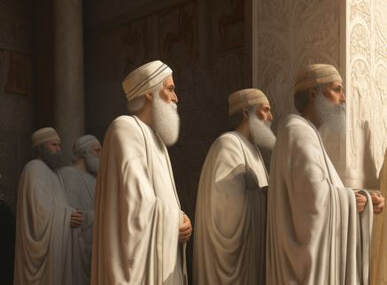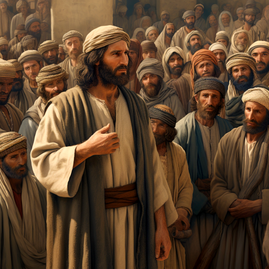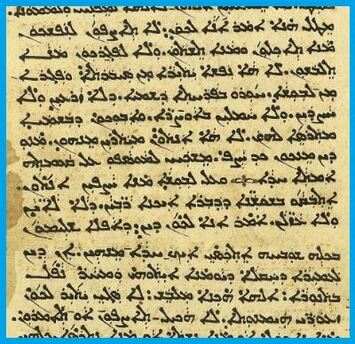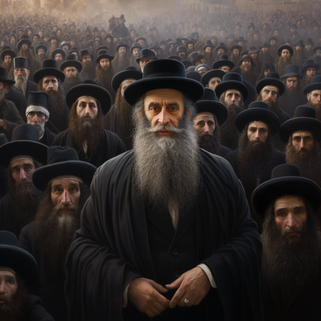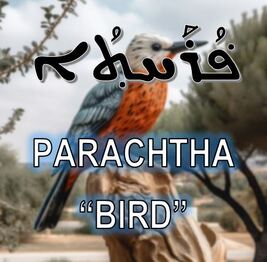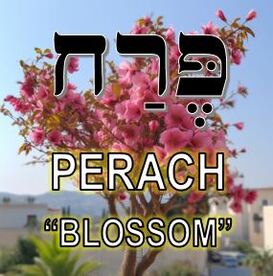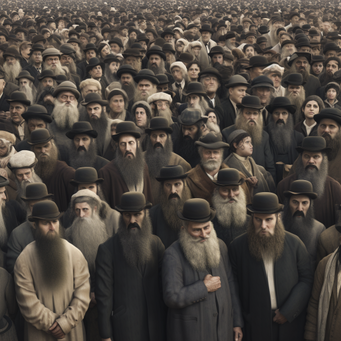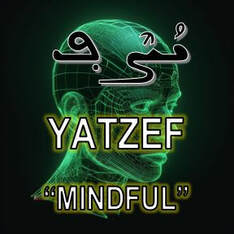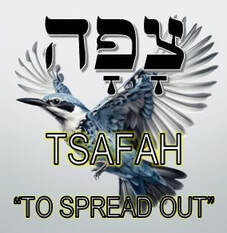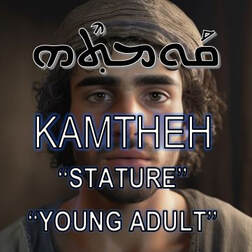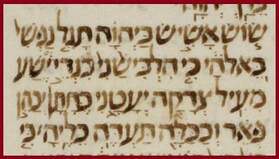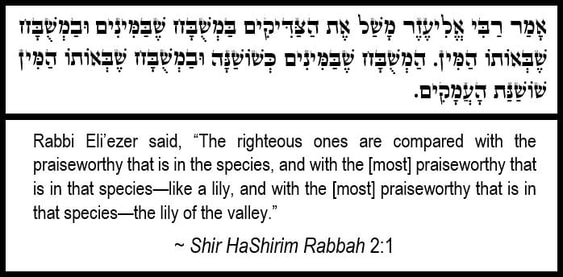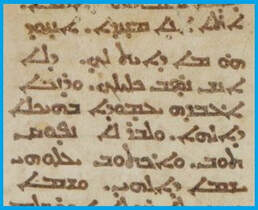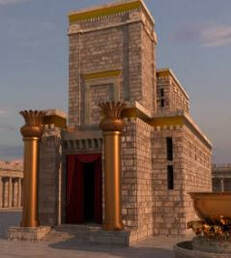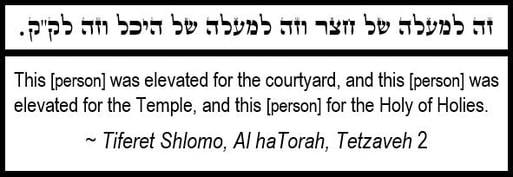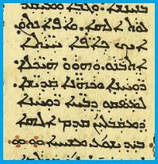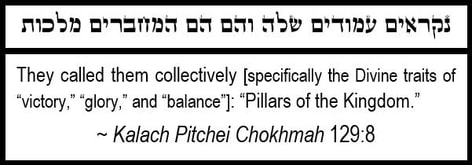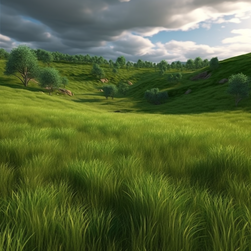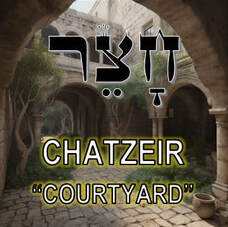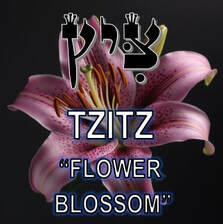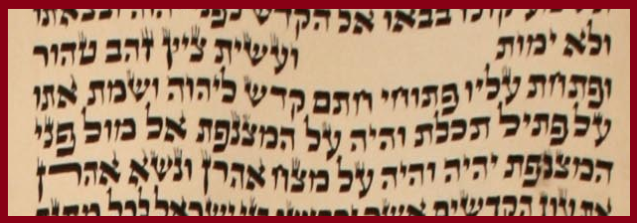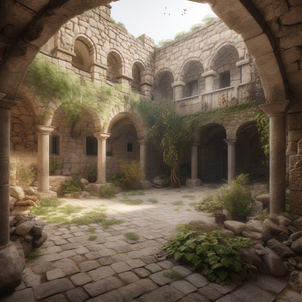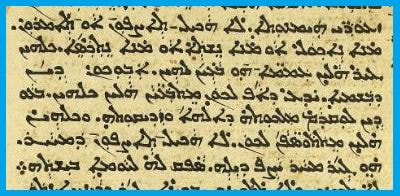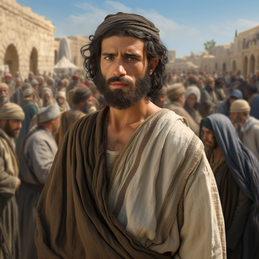A KINGDOM OF PRIESTS
by Jeremy Chance Springfield
8/1/2023
When the Creator gave us the Torah, He put it all on the table. The heart of the Holy One was laid bare from atop the heights of Horeb to those standing in awe at the mountain's foot. The Torah embodies the hopes He has for all coming to Him in faith—that we be a nation devoted to Him. Our value in His eyes must be recognized. This implies that we trust His plans for us.
The central focus of these plans is that mankind reflects the image of the Most High. That means mediation—to be the go-between so that all of creation can see His goodness and care so profusely poured out upon it. Although often appearing to another cog amidst the rest of this wonderfully working world, man has a meaningful destiny to fulfill. If the world is to perceive the Creator, it will be through us who bear His image in an intercessory act that gives them the hope of enjoying an intimate connection to His reality.
The central focus of these plans is that mankind reflects the image of the Most High. That means mediation—to be the go-between so that all of creation can see His goodness and care so profusely poured out upon it. Although often appearing to another cog amidst the rest of this wonderfully working world, man has a meaningful destiny to fulfill. If the world is to perceive the Creator, it will be through us who bear His image in an intercessory act that gives them the hope of enjoying an intimate connection to His reality.
From the summit of Sinai the Holy One disclosed His dream for Israel as the archetype for all mankind, as recorded in Exodus 19:5-6.
6 and you shall be to Me a kingdom of priests…
His people are beloved of Him--His most precious possession.
Israel thus inhabits the highest of honors--to be a kingdom of priests.
Israel thus inhabits the highest of honors--to be a kingdom of priests.
This exemplifies the lofty place we hold in His eyes. That means every person represents royal blood—spiritually speaking. With that grand position comes the expectation that we move in authority in the earth to reestablish the supernal bond between the Creator and His creations.
The intent for us to be a treasured kingdom of priests was not initially limited to one tribe. Rather, among each family would be found one in a priestly role to intercede in union with their fellow people for the nations of the world.
This we see was the case in Exodus 19:22.
The intent for us to be a treasured kingdom of priests was not initially limited to one tribe. Rather, among each family would be found one in a priestly role to intercede in union with their fellow people for the nations of the world.
This we see was the case in Exodus 19:22.
The identity of these priests is not stated, but neither is it restricted in scope. A definite class of individuals existed, infused within the breadth of the twelve tribes, who had the right to serve as priests.
Just a few verses later, in Exodus 19:24, the distinction is again stated.
Just a few verses later, in Exodus 19:24, the distinction is again stated.
Without confining the criteria of the priesthood to a single tribe, these passages emphasize the original dream of the Most High: an entire nation functioning in the exalted merit of priests!
This is the goal for His covenant people.
To say we have fallen short of that is the understatement of all time. Man’s sin—specifically idolatry—cast us to a depth from which we can barely see our original purpose. The horrendous sin of the golden calf is the only catalyst of a spiritual plummet from our purpose in Torah that can be brought forth as the reason for the limiting of that Divine dream to a single tribe.
This is the goal for His covenant people.
To say we have fallen short of that is the understatement of all time. Man’s sin—specifically idolatry—cast us to a depth from which we can barely see our original purpose. The horrendous sin of the golden calf is the only catalyst of a spiritual plummet from our purpose in Torah that can be brought forth as the reason for the limiting of that Divine dream to a single tribe.
Rather than the people inheriting the desire for mankind to operate in His image and be the mediator for all of creation, the grand intercessory act would be singled out as the purpose of one tribe among the rest.
Deuteronomy 10:8 provides the declaration.
Deuteronomy 10:8 provides the declaration.
The tribe of Levi—alone out of all the others—was chosen to minister as priests. This calling meant their contributions were decidedly spiritual, restricting their physical participation in and enjoyment of some of the allowances experienced by the other eleven tribes, as Deuteronomy 18:1 explains.
The priestly tribe of Levi is wholly dependent upon the graciousness of the Holy One to provide their needs. This comes through measured degrees of provision funneled to the tribe through various means, to be sure, but it requires at all levels a trust in Him to meet their most basic of needs while they attend to the supernal service of intercession.
By singling out one tribe to act in a priestly ministry, the other tribes were immediately placed into a different position. That position could easily lead to misplaced focuses on secular pursuits or erroneous assumptions of being less significant than their Levitical brothers. In short, it allowed the tribes the unfortunate entertaining of the idea that the original intent for a nation of priests had been abandoned, and their role was relegated into a supporting character.
With the coming of the Messiah Yeshua, this misplaced notion of inferiority was addressed, for He came to draw all of Israel into the fulfillment of the Divine dream of a kingdom of priests. This is noticeable in that His focus was never aimed at the religious and the priestly families. Although they certainly contributed to His ministry—mostly in the form of staunch opposition—the intended audience of the Messiah’s teachings were the common tribes who remained in the land. The ears of the mundane everyman were meant to hear the message of the Messiah.
By singling out one tribe to act in a priestly ministry, the other tribes were immediately placed into a different position. That position could easily lead to misplaced focuses on secular pursuits or erroneous assumptions of being less significant than their Levitical brothers. In short, it allowed the tribes the unfortunate entertaining of the idea that the original intent for a nation of priests had been abandoned, and their role was relegated into a supporting character.
With the coming of the Messiah Yeshua, this misplaced notion of inferiority was addressed, for He came to draw all of Israel into the fulfillment of the Divine dream of a kingdom of priests. This is noticeable in that His focus was never aimed at the religious and the priestly families. Although they certainly contributed to His ministry—mostly in the form of staunch opposition—the intended audience of the Messiah’s teachings were the common tribes who remained in the land. The ears of the mundane everyman were meant to hear the message of the Messiah.
That message—and that audience—is the focus of His famous “sermon on the mount” that is recorded in Matthew chapters 5-7. His address is to the people of the land, where the words Yeshua spoke are portals into the eternal intents of the Most High for His people.
Those purposes are perhaps best distilled in the passage of Matthew 6:25-30.
Those purposes are perhaps best distilled in the passage of Matthew 6:25-30.
25 Because of this, I say to you: You should not be mindful for your soul – what you shall eat, and what you shall drink, and neither for your body – what you shall wear. No, see, the soul is greater than food, and the body than clothing.
|
26 You must gaze at the bird of the heavens: they do not sow, and do not reap, and do not gather in the barns, and your Father who is in the heavens is nourishing to them. No, see, you are greater than them!
27 Yet who from among you, while mindful, is able to increase upon his stature one cubit? 28 And concerning clothing, why are you mindful? You must inquire at the lilies of the pasture, that do not toil and do not weave [clothes]. |
29 I say to you, yet, that not even Shlemun in all his glory was covered as one from them.
30 Yet, if the tuft of the field, that exists today, and tomorrow falls into the furnace, the Deity thus clothes, [will He] not much more you, little of trust?
30 Yet, if the tuft of the field, that exists today, and tomorrow falls into the furnace, the Deity thus clothes, [will He] not much more you, little of trust?
In these words Yeshua sought to remind the tribes of their true worth and who they were really meant to be in the Creator's eyes. While the Divine dream was restricted in seeing a kingdom of priests dwindle to but a tribe of intercessors, that ancient vision for Israel remained intact. The people maintained their cherished position in the eyes of the Most High. They needed only to be prompted of its preservation and their vital role in it being fulfilled.
Embedded in these words of encouragement are deeper layers of meaning pointing to the priestly nature of the entire people. Although restrained from ministering in that function for the time being, the rest of the tribes could not escape their treasured role as a kingdom of priests.
Yeshua first admonishes them in 6:25 to recognize that their lives were not meant for the same vagaries to which so many souls wasted themselves. The holy people must never sanction caprice as king by their actions. No whimsy can rule their deeds, for Israel is meant for supernal matters--from the greatest to the least. The image-bearers of the Holy One must trust His plans and know He works even in the routine elements of a believer’s life for an exalted and eternal goal.
Embedded in these words of encouragement are deeper layers of meaning pointing to the priestly nature of the entire people. Although restrained from ministering in that function for the time being, the rest of the tribes could not escape their treasured role as a kingdom of priests.
Yeshua first admonishes them in 6:25 to recognize that their lives were not meant for the same vagaries to which so many souls wasted themselves. The holy people must never sanction caprice as king by their actions. No whimsy can rule their deeds, for Israel is meant for supernal matters--from the greatest to the least. The image-bearers of the Holy One must trust His plans and know He works even in the routine elements of a believer’s life for an exalted and eternal goal.
In effort to emphasize the lofty purpose of the people, Yeshua commands them consider the “bird of the heavens” in 6:26. Fowl are depicted as relying on the provisions of the Most High for their life needs—provisions He offers without request, but rather, with abundance for nourishment. Yeshua then exclaims that they are “greater” than them.
It is in this passage that the core intent of Yeshua’s somewhat veiled message is hidden. After reminding the common people from the tribes of their importance to the Creator, Yeshua brings up the concept of birds being provided for. Like the Hebrew language, Aramaic has several terms for “bird” that can be used—each with their own particular subtlety in meaning. In this case, the Peshitta’s text records that the word Yeshua actually used for “bird” was PARACHTHA.
It is in this passage that the core intent of Yeshua’s somewhat veiled message is hidden. After reminding the common people from the tribes of their importance to the Creator, Yeshua brings up the concept of birds being provided for. Like the Hebrew language, Aramaic has several terms for “bird” that can be used—each with their own particular subtlety in meaning. In this case, the Peshitta’s text records that the word Yeshua actually used for “bird” was PARACHTHA.
The choice to use this term was not arbitrary. The Aramaic term PARACHTHA “bird” is from the Hebrew root meaning of PERACH, which is “blossom.” The notion is that a bird is likened to a flowering tree—as in the burst of color in a bird’s feathers is comparable to a vibrant blossom among a tree’s green leaves.
This term, besides its ordinary usage, is utilized in religious contexts in ancient Jewish texts as a title for the young men of priestly lineage who served in specific tasks in the Temple before assuming fully-fledged priestly duties. We see them referred to as such in their lighting of the four special menorahs which lit up the Temple courtyard for Sukkot [see: Mishnah, Sukkah 5:2-4], as well as referring to those who descended into the cavity under the altar beginning the tunnels which carried the sacrificial blood and the wine down and away to the Kidron brook on Jerusalem’s southeastern side [see: Talmud Bavli, Sukkah 49a].
Yeshua says that these “birds” or “young priests” neither sow, reap, nor store away in barns, but are provided for by the Creator. The priestly families were entirely dependent upon the Most High for the basic necessities of life, and generally were not reliant on their own agricultural yields for sustenance.
Yeshua is reminding the people of the land that although they come from tribes who are unable to serve as priests, they are just as beloved as the priests, and their trust in the Holy One for provisions should be on the same level, for the original desire was to have a kingdom of priests where those from all twelve tribes ministered as mediators to the Most High. This notion is further emphasized by Yeshua saying that they are “greater” than them. The Aramaic term He used could just as easily be rendered as “more abundant,” which is literally the reality in play: a minority served as priests among the tribe of Levi, and the remaining people of the other tribes far outnumbered the Levites.
Yeshua says that these “birds” or “young priests” neither sow, reap, nor store away in barns, but are provided for by the Creator. The priestly families were entirely dependent upon the Most High for the basic necessities of life, and generally were not reliant on their own agricultural yields for sustenance.
Yeshua is reminding the people of the land that although they come from tribes who are unable to serve as priests, they are just as beloved as the priests, and their trust in the Holy One for provisions should be on the same level, for the original desire was to have a kingdom of priests where those from all twelve tribes ministered as mediators to the Most High. This notion is further emphasized by Yeshua saying that they are “greater” than them. The Aramaic term He used could just as easily be rendered as “more abundant,” which is literally the reality in play: a minority served as priests among the tribe of Levi, and the remaining people of the other tribes far outnumbered the Levites.
These sentiments are concluded in 6:27 with Yeshua asking if being “mindful” of such things can add a cubit to one’s stature. While seemingly straightforward in context, the inquiry is actually infused with further connections to the “bird” and “young priest” concept to which He had just alluded.
The term He used for “mindful” is YATZEF, and comes from the root concept of TZAFAH, which means “to spread out.”
The term He used for “mindful” is YATZEF, and comes from the root concept of TZAFAH, which means “to spread out.”
The connection here is that a bird must “spread out” its wings to take flight, as well as “spreading out” its range over great distance to find nourishment. The question is thus posed: can one “spreading out” add one cubit to “his stature?”
Yeshua also used the word KAMTHEH, which generally means “his stature” in normal usage, but can also mean “young adult”—whose alternate definition, when paired with the “spread out” and “bird” / “young priest” concepts inherent in the other terms, all point to the priests dependent upon Divine provision.
Yeshua also used the word KAMTHEH, which generally means “his stature” in normal usage, but can also mean “young adult”—whose alternate definition, when paired with the “spread out” and “bird” / “young priest” concepts inherent in the other terms, all point to the priests dependent upon Divine provision.
The priestly context of Yeshua’s words continues in 6:28, where He asks why we should be mindful of our clothing. We are implored to consider the lilies of the pasture, which neither toil nor weave. The concepts of laborious “toil” and the act of “weaving” thread are directly connected to the concept of clothing, obviously, but there is yet more here to what He is suggesting.
First, the concept of clothing in Scripture has to do with one’s personal spiritual merit; are they clothed in righteousness, or—forbid it—in wicked deeds?
This thought is also paralleled to the clothing of a priest in Isaiah 61:10.
First, the concept of clothing in Scripture has to do with one’s personal spiritual merit; are they clothed in righteousness, or—forbid it—in wicked deeds?
This thought is also paralleled to the clothing of a priest in Isaiah 61:10.
To this idea, the text of Shir HaShirim Rabbah 2:1 adds an interesting assertion.
Believers are called to be righteous in our deeds, and in that manner, to be as the “lilies of the pasture.” To be referred to as a “lily” points to Yeshua’s mention of the PARACHTHA “bird” / “blossom” / “young priest.” with the “priest” likened to a “lily,” believers from the tribes would originally have been viewed as “lilies!”
That priestly link of the lilies is established also by the curious detail of the Temple’s construction that is mentioned in 1st Kings 7:19.
Perceiving these connections about the lily work adorning the crowns of the pillars (much like the “priestly turbaned” believer of Isaiah 61:10 above) helps also to make more sense of what Yeshua promised us in Revelation 3:11-12.
In an incredible alignment, Yeshua is recorded as admonishing believers to defend their “crown,” and those meriting such triumph shall be made a pillar in the Temple! Interestingly, in both Greek and Roman culture, crowns made out of lilies were used to adorn priests, princes, and brides alike.
The idea that a believer’s personal spiritual merit—in this case being “victorious” over temptation—has the ability to connect one to a certain Temple feature is found also in Judaism in the text of Tiferet Shlomo, Al haTorah, Tetzaveh 2.
The text is making a comment on the contributions the people at Sinai brought to furnish the materials for the Tabernacle. The people were thus "elevated" by their merit to variously contribute specific goods that went to form specific parts of the structure, linking that person by merit to that part.
Likewise, each believer has a specific role to play in the construction of the spiritual “House” of the Holy One. Yeshua’s disciple, Peter, saw this same link and encouraged his readers in that progressive fulfillment of the Creator’s dream in 1st Peter 2:5.
Likewise, each believer has a specific role to play in the construction of the spiritual “House” of the Holy One. Yeshua’s disciple, Peter, saw this same link and encouraged his readers in that progressive fulfillment of the Creator’s dream in 1st Peter 2:5.
In similar context of the Creator’s character traits that believers receive and display in our lives, the text of Kalach Pitchei Chokhmah 129:8 explains that the Temple pillars were seen as symbols referring to specific Divine traits in Judaism.
This “victory,” “pillar,” “crown,” and “stones” of the “Temple” and priesthood imagery of believers in Revelation 3:11-12 and 1st Peter 2:5 would have thus likely been quite familiar to its original readers. These Temple links all show the context in which Yeshua’s words were intended.
Returning all this to Matthew 6, more notable connections can be made.
The additional concept in 6:28 of a “pasture,” or as it is often translated—“field”—is essentially that of an open country or “valley”—the level area between mountains. However, the term carries with it a deeper connotation in Jewish religious texts, like that found in Bereshit Rabbah 22:7.
Returning all this to Matthew 6, more notable connections can be made.
The additional concept in 6:28 of a “pasture,” or as it is often translated—“field”—is essentially that of an open country or “valley”—the level area between mountains. However, the term carries with it a deeper connotation in Jewish religious texts, like that found in Bereshit Rabbah 22:7.
Quoting from Micah 3:12, it refers to the Temple as a SHADEH “field,” allowing for the link to the “lilies of the pasture / field / valley” to be understood as the righteous who are supposed to minister as priests in the Temple, who depend upon the Holy One Himself for the vital provisions of life!
This is further validated in 6:29 by mention of King Solomon’s adornment, which Yeshua claims was still no equal to that of lilies. These sentiments conclude in 6:30 with the proposal that since the tuft--the grasses—of the field are clothed by the Creator, how much more so shall His people be cared for by His trustworthiness?
This is further validated in 6:29 by mention of King Solomon’s adornment, which Yeshua claims was still no equal to that of lilies. These sentiments conclude in 6:30 with the proposal that since the tuft--the grasses—of the field are clothed by the Creator, how much more so shall His people be cared for by His trustworthiness?
This parallel of grass and man is one made also in Psalm 103:15, which has some intriguing deeper layers to it that link to the themes of this study.
The Hebrew has some unique choice of terms worth a brief look. First, the term KECHATZIR “As grass” has as its root the word CHATZEIR “courtyard.” This immediately brings to mind the courtyard of the Temple—especially with the term HASHADEH “the field” and its conceptual link to the Temple.
Also, the Hebrew behind “as…blossom” and “shall he blossom” are KETZITZ and YATZITZ, respectively. Both are from TZITZ, meaning “flower blossom.”
This connects not just to the Temple, but to the golden headgear worn by the high priest upon which was written the Creator’s Name in Exodus 28:36-37!
Although the Hebrew term is typically translated something like "plate" upon which is written the Divine Name, the word TZITZ literally just signifies a generic "flower blossom." In this the priestly believer link is made—as the “Temple pillar” upon whom the Divine Name shall be written, and the “lily” atop the pillars, and the “priestly turbaned” believer of Isaiah 61:10. The interwoven connections in His Word are amazing!
The unique alternate definitions hinted at above in Psalm 103:15 with the concept of man as grass inevitably connect to the words of Psalm 84:11 (verse 10 in most English versions).
The unique alternate definitions hinted at above in Psalm 103:15 with the concept of man as grass inevitably connect to the words of Psalm 84:11 (verse 10 in most English versions).
In the sincerity of this beautiful assertion we see the link to the “courtyard” / “grass” plainly. In this also is the trust of the believer in whatever proximity he can be to the Presence of the Holy One. Although perhaps not even participating in the priestly actions occurring within the Temple—he is still content to have some manner of intimacy where he abides—knowing he is provided for even if it be only at the threshold of the Temple.
With these insights we can read Yeshua’s closing words in Matthew 6:31-34.
31 You must not, therefore, be mindful, or say, ‘What shall we eat?’ or, ‘What shall we drink?’ or ‘How shall we be covered?’
34 You must not, therefore, be mindful of tomorrow, for the morrow has its own care, and adequate for the day is its evil.”
Yeshua ends this portion of His message with the restating of what He originally presented: the people of the Most High must abide in trust, looking to the Holy One for all our needs in this life, so that we can bring as much of the spiritual into the physical as His mediators.
|
Remembering that the original desire for Israel was that of a nation of priests, these Temple-centric allusions speak strongly to the value Messiah sought to emphasize to the people of the land of how much even the common Israelite is valued in the Creator’s heart. Although the dream of the Most High has not yet been realized with all twelve tribes functioning in the role of priests to the nations, the truth remains of our high calling.
|
We exist in our various placements—a multi-faceted kingdom whose citizens each have a part to play individually, while simultaneously working to a united goal as a people. That goal requires we focus on His Divine dream where we interact as intercessors with a world in need of His Kingdom truths. To be a kingdom of priests demands that we seek that Kingdom first.
All study contents Copyright Jeremy Chance Springfield, except for graphics and images, which are Copyright their respective creators.
